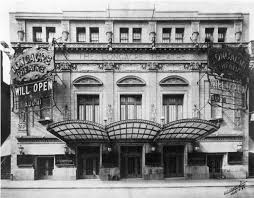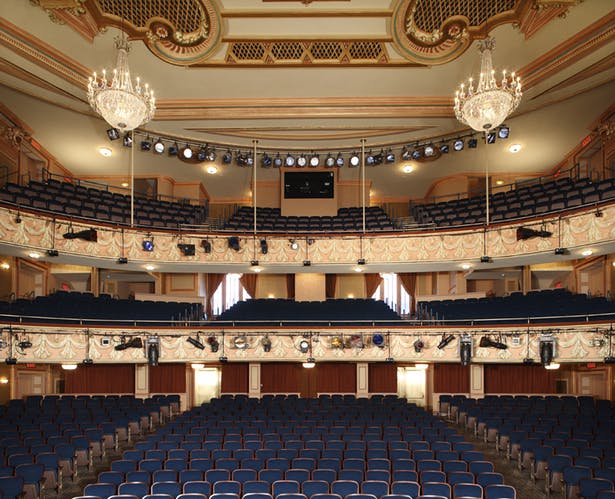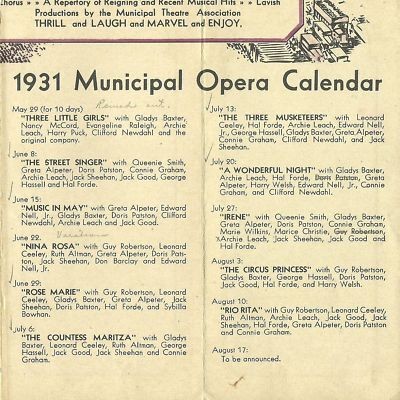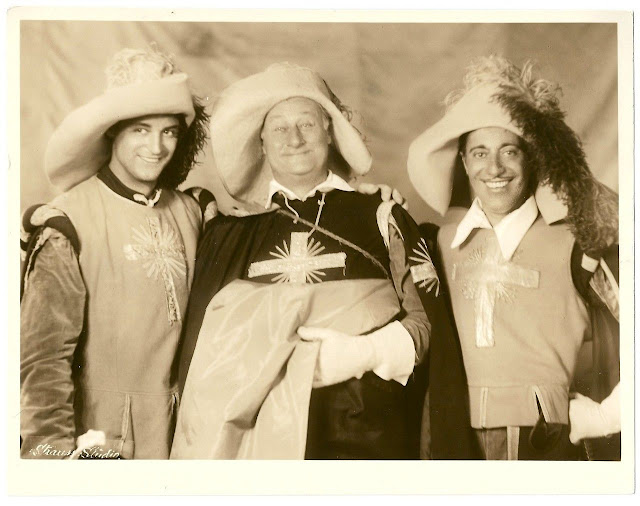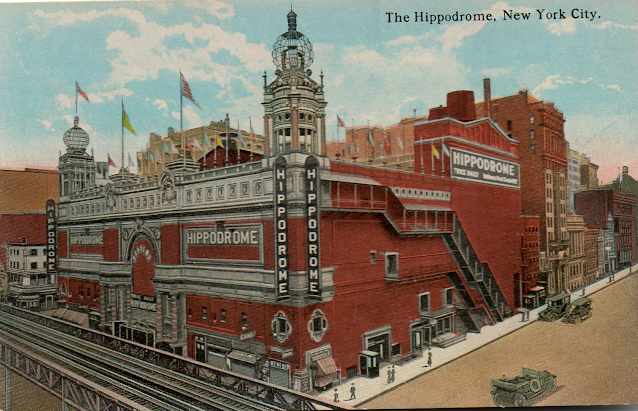He's Grand - and He's Grant
by John Paddy Carstairs
John Paddy Carstairs Introduces You to Another Englishman in Hollywood who is going to be One of To-morrow's Stars
He's bright, he's breezy, and very happy-go-lucky! One gets the impression that it is immaterial to him whether he is in pictures or merely sweeping crossings. He'd be joking or laughing at the passers-by just as he does at the Paramount studios, where they hold him on a very nice contract.His name is Cary Grant, and he is English. If I say he is like Gable, he will be very annoyed. So will Gable. So will the Gable fans, not to the mention the Grant fans and everyone else! Nevertheless, he is of the same type as Clark Gable - just another likeable rough guy of the screen.
As a matter of fact, Cary takes this inevitable comparison with a great deal of indifference. I asked him about it, and he replied that he thought it probably annoyed Gable just as much as it did him. They were two separate players with different kinds of characters and types. I admit he is right, although I am wondering if he would have got his chance if the Gable type was not all the rage, as it is now.
He's very tall - about six feet two - with bright brown eyes that glint and sparkle while you talk to him. He has jet black hair and a dark skin.
When I first met him, the studio officials wanted me to interview him in the special Interview Room. We waited till they had introduced us, then both grinned.
When they had gone out I suggested that we should walk around the studio, and talk as we strolled. I have never seen so much relief on a man's face before: the suggestion set Cary at ease. We started off and wandered around the enormous Paramount studio, in and out of sound stages. We watched a new production being filmed; chatted to Randolph Scott, had coffee in the studio canteen, lazed on the lawn and, for quite a while, examined odd junk that had accumulated in the studio property room. Meantime Cary bubbled on, chatting, wisecracking and having a very good time. This Grant fellow is a lot of fun. As a matter of fact his life sounds like a film scenario.
Cary was born in Bristol, and his grandfather, Percival Leach was a very well-known stage actor, which probably accounts for the great liking for dramatics that developed in Cary at an early age. It was also probably responsible for the interest Cary took in the Princess Theatre, Bristol, where he invented a new and very successful lighting system.
This contact with stage folk made Cary restless. At the age of twelve he ran away from Fairfield Academy and joined the Bob Pender Acrobatic Troupe, a bunch of entertainers who did all sorts of tricks, from dancing, acrobatics and clown routines to comedy scenes and stilt dancing. At Norwich, Cary spent two months learning all the tricks of the troupe. But meantime his father had managed to find the truant and carried him back to school. Three years later Cary ran away again and managed to stay with the Pender troupe. They became very well liked in England, and then decided to make a trip to New York. Cary spent two years with the troupe traveling round America, and then returned to England, where he toured in indifferent stage shows. Meanwhile he started to develop a very elegant baritone voice.
"Gosh! What a thrill for me! Soon he was back in New York and was playing in Golden Dawn, a musical show. Next he had the juvenile lead in Polly, the attractive sequel to the Beggar's Opera. Following this came Boom Boom was opposite Jeanette MacDonald," said Cary.
"We played the show in New York and then Chicago. Jeanette came out here to Hollywood to make The Love Parade picture, and I dashed off to Europe for a grand holiday. When I came back I had quite a run of stage successes, both in New York and on tour. Then I made a fresh contract with film people when I played alongside Fay Wray and Kent Douglas in Nikki. After this I thought a visit to Hollywood would be quite an idea, and I made the trip by car all the way from New York. I was over at Paramount having lunch with a friend one day when some studio executive or other asked me if I would play opposite a girl of whom they wanted to make a test."
Cary grinned. "It was all right with me," he said, "and they liked the test of us both. Two weeks later they gave me a contract and here I am!"
I asked this young man how he liked Hollywood.
"It's fine - so is America - but I must lose my English accent if I want a lot of different parts," he told me. "I've been trying, but so far I have only a curious mixture of English and American dialects!"
At that moment a flash of yellow caught my eye. "Hey!" I asked, "what's the idea of these vivid braces?"
Cary had the brightest Canary-colored braces I have ever seen. They peeped out from under his coat and almost smacked on in the eye!
Cary laughed, and then told me he had opened a haberdashery shop on the famous and very smart Wilshire Boulevard. "Swell clothes," he told me, "come on in and buy a tie one day. All my stuff is from Bond Street and Jermyn Street. It is a very exclusive shop, believe me! We did marvelously the first two days we opened, having forced our pals to come down and buy!" He went on chattering about the shop, and the humors of it.
Eventually I called a halt. "That will be enough from you. I'll lunch you here in a few days' time!"
I wanted to see if this vivaciousness just happened now and then or was it constant. I kept a careful check on the Grant lad, and I can promise you it's constant. With Cary, life is just a bowl of whatever you make it. You will see him in many films from now on, notably Blonde Venus, with Marlene Dietrich, and Hot Saturday, with Nancy Carroll. He is one of to-morrow's stars.
Film Pictorial - December 17, 1932 - page 20





.jpg)
.jpg)
_Lobby_Card.jpg)

























